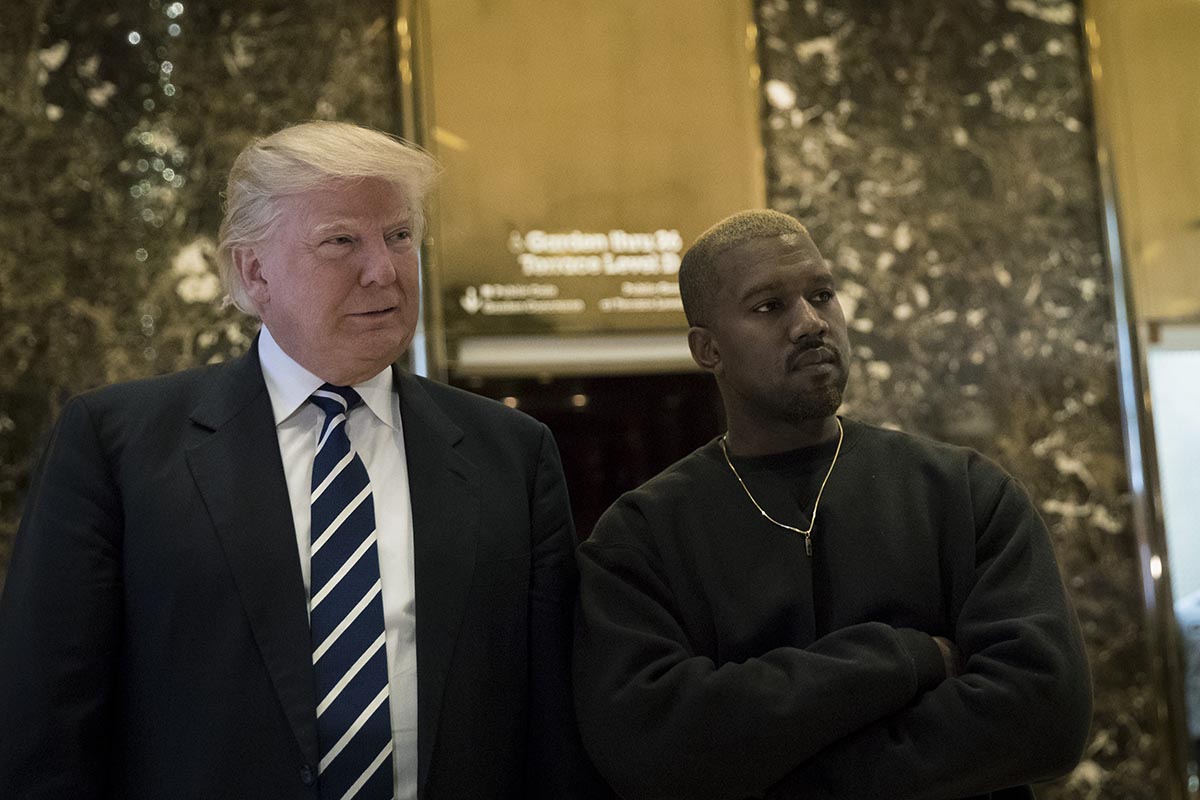What happens when a hip hop icon takes the red pill and dares to challenge liberals
Rapper Kanye West recently committed an act of cultural heresy when he tweeted, “I love the way Candace Owens thinks.” Donald Trump supporters like Owens, a writer, actress and conservative commentator, have little standing in the hip-hop world, much less in the mainstream black political consensus.
Reactions to West’s tweet ranged from dismissive to contemptuous. Among his detractors were Twitter activist Shaun King, and actor Tom Arnold. To his credit, West is standing by his original comment, tweeting, “Constantly bringing up the past keeps you stuck there,” “self-victimization is a disease,” and “demonization is metastasizing.” He also vocalized support for the President during a subsequent radio appearance, sparking even more outrage.
“The essence of Owens’s (and West’s) message is that the obsessive focus on historical racism as the determining factor in the lives of American blacks today victimizes them by stripping them of individual agency. ”
The essence of Owens’s (and West’s) message is that the obsessive focus on historical racism as the determining factor in the lives of American blacks today victimizes them by stripping them of individual agency. Candace Owens is certainly not the first black thinker to express such ideas. Thomas Sowell, Shelby Steele, Walter E. Williams, and my Manhattan Institute colleague, Jason Riley, have made similar arguments. As Jason D. Hill wrote in Commentary, in a response to Ta-Nahesi Coates’s victimhood opus, “Between the World and Me:"
I am saddened by your conviction that white people wield such a great deal of metaphysical power over the exercise of your own agency. In making an enemy of the Dream that is a constitutive feature of American identity, you have irrevocably alienated yourself from the redemptive hope, the inclusive unity, and the faith and charity that are necessary for America to move ever closer to achieving moral excellence. Sadder still, you have condemned the unyielding confidence in self that the Dream inspires.
West’s rejection of such a worldview represents a threat to the ideological monopoly that “social justice warriors” and Black Lives Matter advocates have enjoyed in the hip-hop universe.
From its inception, the genre has generally reflected the left-wing consensus that minority communities are hapless victims of institutionalized racism and that individuals have no say in their destiny. For example, Big Pun’s “Capital Punishment” lays the woes of the ghetto at the feet of a government “system so organized, they’ll get to you and who you runnin’ with.” In “Murder to Excellence,” West himself asserts that the lower “life expectancy for black guys” reflects that “the system’s working effectively.”
But hip-hop artists have also expressed frustration with their communities for playing a role in perpetuating negative social conditions that define much of black America.
In “The Story of O.J.,” Jay-Z argues that young blacks reject bourgeois values like financial literacy and personal discipline to the detriment of themselves and future generations. “You wanna know what’s more important than throwin’ away money at a strip club?” Jay-Z asks. “Credit./ You ever wonder why Jewish people own all the property in America? This how they did it.”
In “44 More,” Logic chastises rappers for their glorification of frivolous spending: “You in the club throwin’ dollars/ but I’m savin’ mine so my kids go to college.” And in “The Blacker the Berry,” Kendrick Lamar highlights the hypocrisy of those who over-identify with official martyrs while ignoring the fact that most murdered young black men die at the hands of their fellows. “So why did I weep when Trayvon Martin was in the street?” Lamar asks, “when gang banging make me kill a n---- blacker than me?/ Hypocrite.”
Conservatives and others who reject the liberal narrative of what it means to be black in America should be heartened by West’s tweets and by other examples of prominent hip-hop artists who have recognized the importance of individual initiative in uplifting minority communities.
West’s tweets could expose his vast audience to conservative arguments with which it is largely unfamiliar.
West may be dismissed as an eccentric – and his newfound rhetoric may or may not prove short-lived – but if even only a few of his many fans reject the victimhood narrative as a result and accept that personal responsibility illuminates the path to excellence, then it will be to the good.
This piece originally appeared at FoxNews.com
______________________
Rafael A. Mangual is the deputy director for legal policy at the Manhattan Institute. Follow him on Twitter here. This piece was adapted from City Journal.
This piece originally appeared in FoxNews.com
